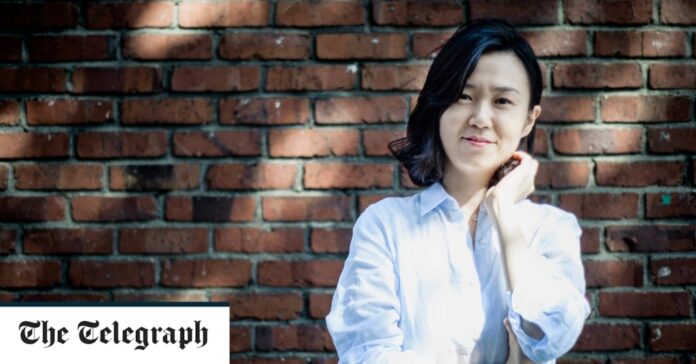The author of Kim Jiyoung, Born 1982 channels George Orwell in this dystopian novel, set in a city-state run by a giant corporation
Cho Nam-Joo’s new dystopian novel, translated by Jamie Chang, follows her runaway bestseller Kim Jiyoung, Born 1982. Published in South Korea in 2016, Kim Jiyoung was the story of a woman suffering from post-partum psychosis. The first Korean title in nearly a decade to sell over a million copies, it ignited a public debate that gained momentum with the country’s #MeToo movement. Its translation by Chang was longlisted for a 2020 National Book Award.
Cho has said that she prioritises theme over other aspects of writing fiction. Kim Jiyoung addressed sexism, as do two forthcoming translations of her books. Miss Kim Knows, slated for publication this summer, is a collection of linked stories about misogyny. Tangerine Green, a coming-of-age novel to be released in July 2024, is a “spiritual prequel” to Kim Jiyoung, Born 1982.
Although feminist themes also arise in Saha, the book’s primary concern is class. “Town”, a fictional city-state, is a former fishing village bought out by a conglomerate. “Ls” are residents deemed to have useful knowledge or skills who enjoy the benefits of citizenship, while “L2s” are only granted temporary work permits. Those with no status at all are called “Sahas”, a term derived from the Saha Estates – a no man’s land inspired by the Kowloon Walled City, a former de jure Chinese enclave within British Hong Kong. Denied healthcare, education, and basic amenities, Sahas are relegated to the most menial jobs.
Echoing Orwell’s 1984, the government of Town relies on censorship and authoritarianism to maintain order. Restrictions include limitations on gatherings and the centralisation of media. “Some words were prohibited from printing or saying out loud. Context was immaterial; mere expression was grounds enough for punishment. There were songs that couldn’t be sung out loud, books that couldn’t be read, roads that couldn’t be taken. People not to meet.” Although L2s and Sahas make up about 30 per cent of the population, the memory of the state’s violent suppression of the “Butterfly Riot” three decades before keeps protests at bay.


